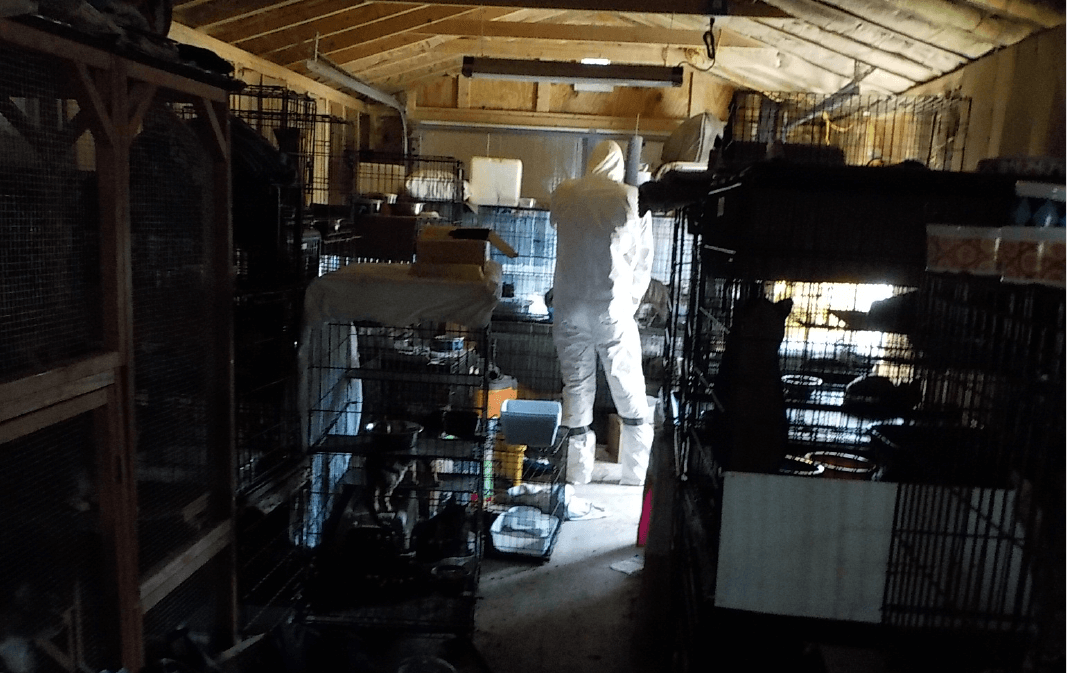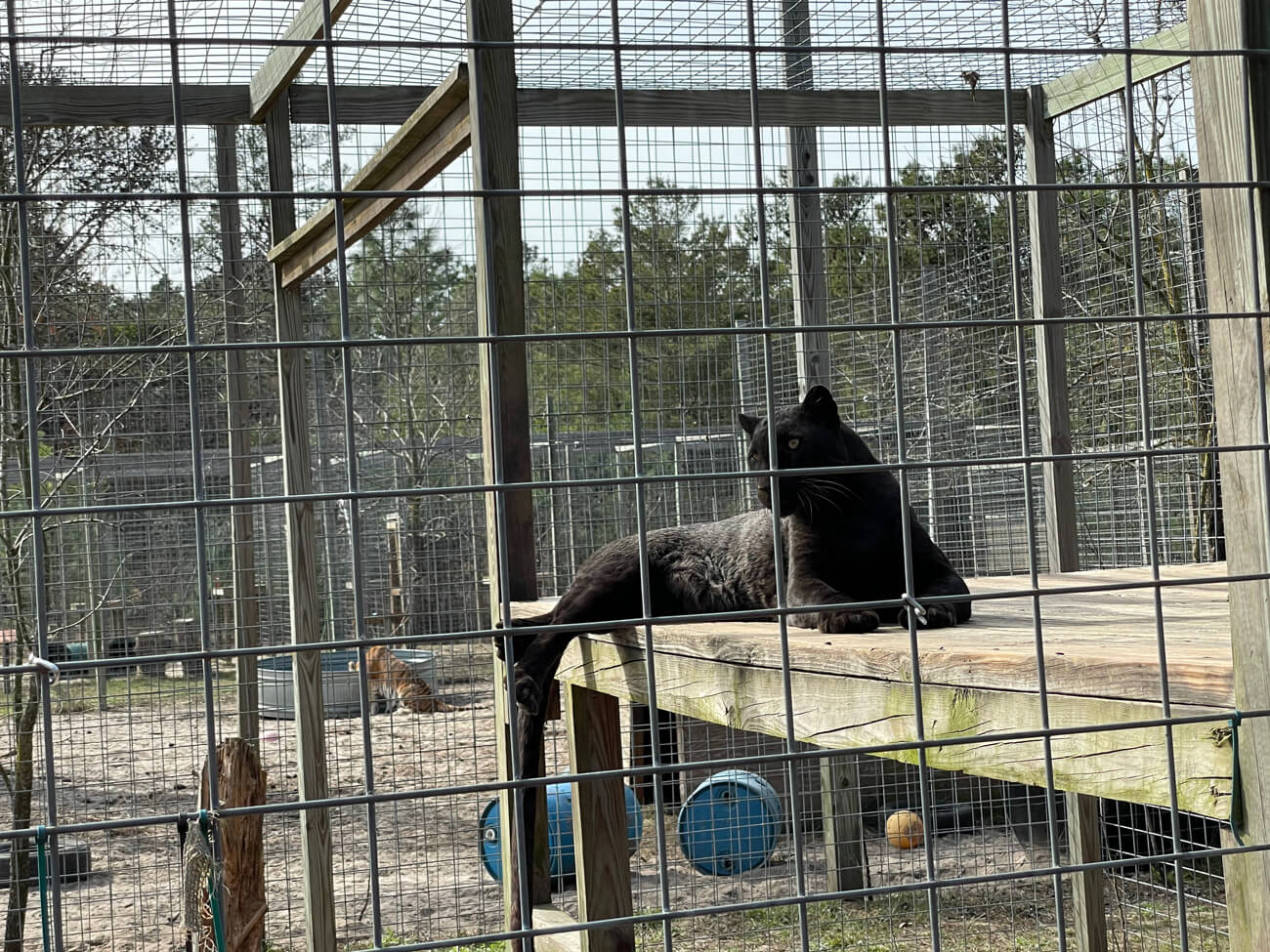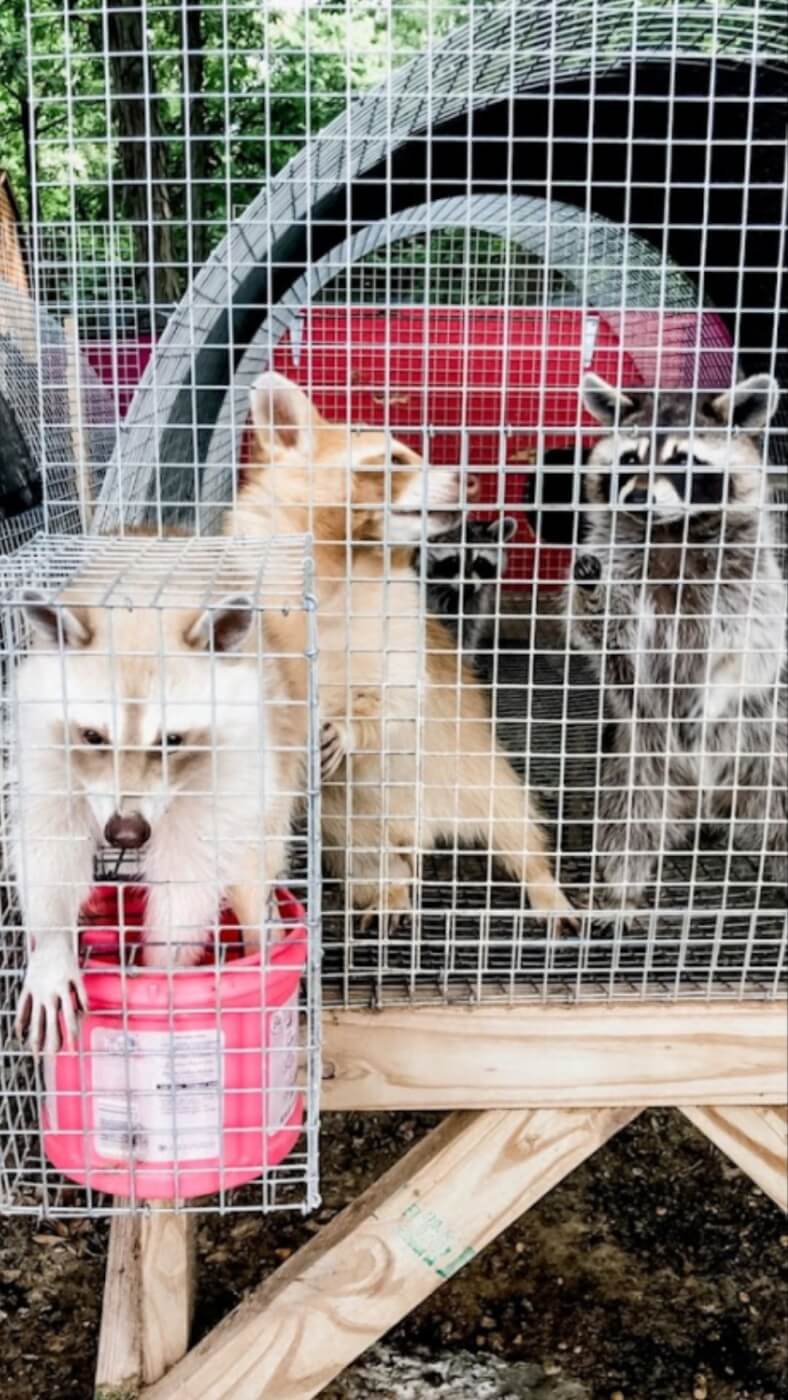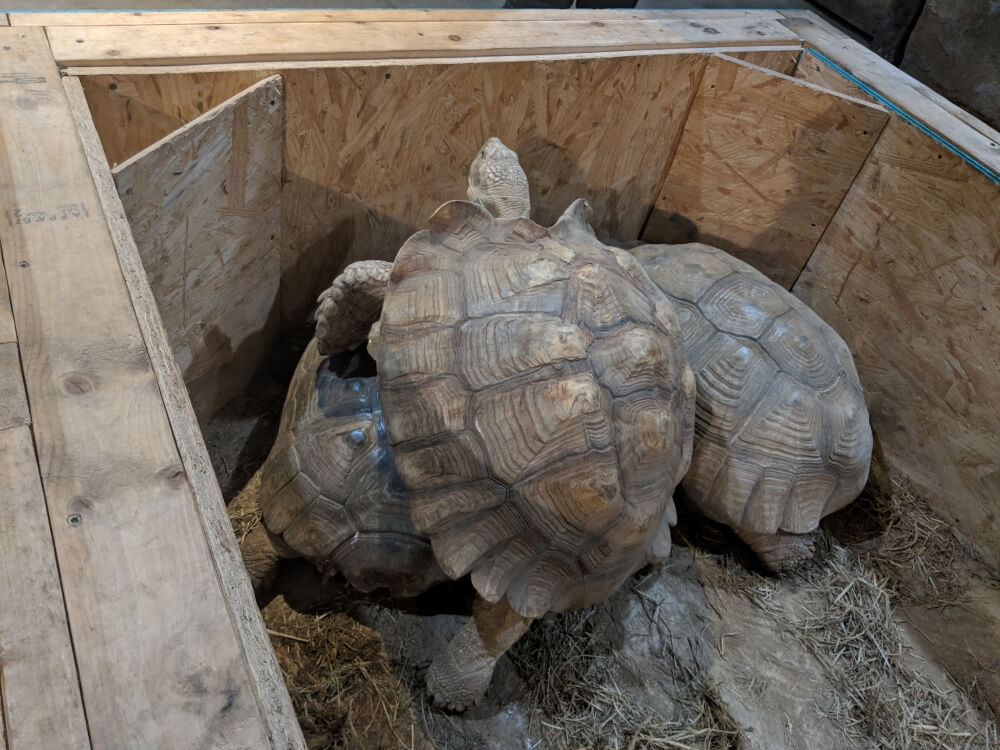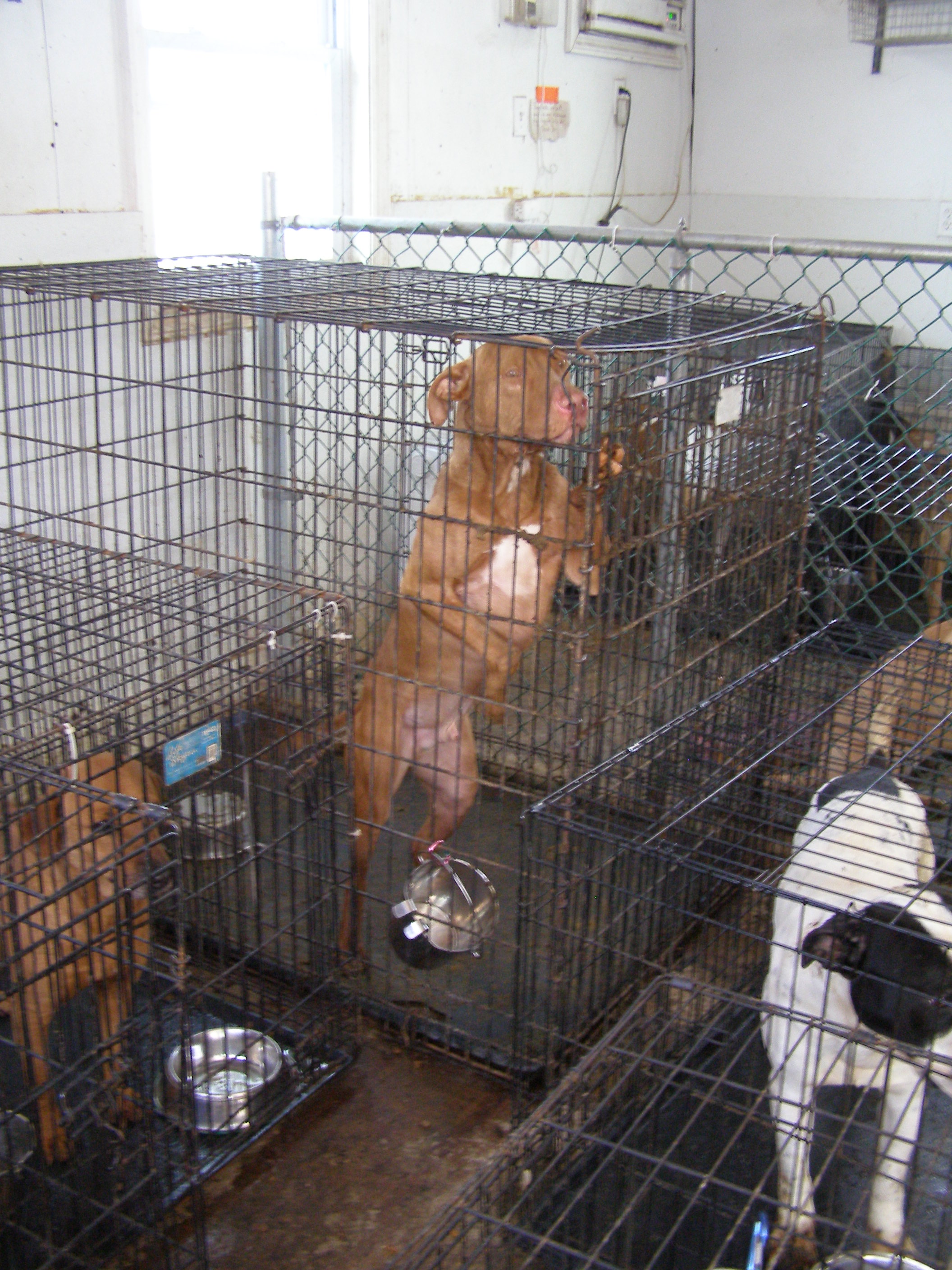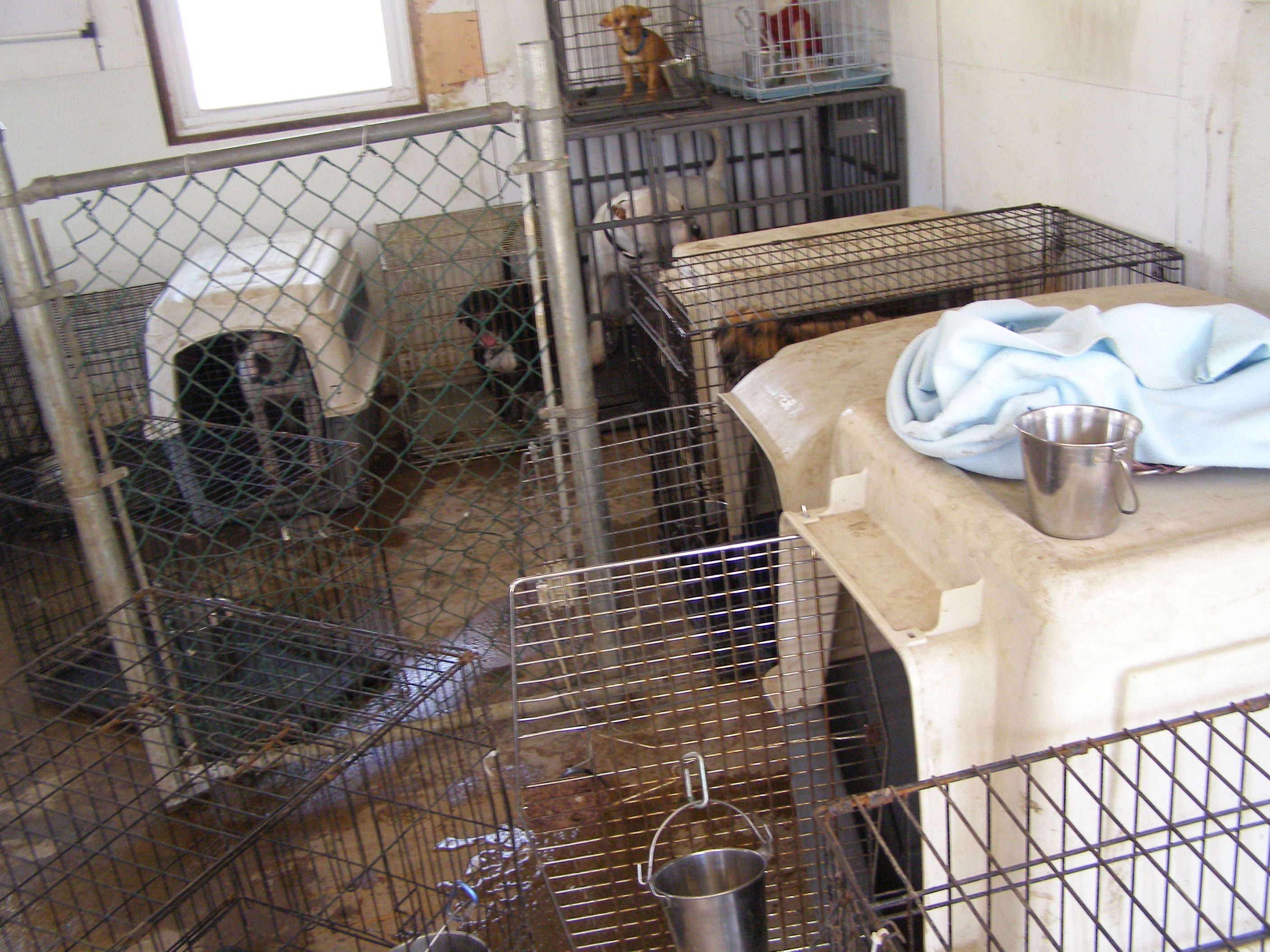Cruel, Seedy, and Greedy: Comparing Animal Hoarders, Roadside Zoos, and Puppy Mills
Have you watched or heard of that shocking show Hoarders? Did you know that there are animal hoarders who confine and stockpile living, feeling individuals? This form of speciesism occurs more frequently than you might think, and its cruelty is comparable to that of seedy roadside zoos and greedy puppy mills.
Neglect inevitably occurs during the hoarding of cats, dogs, and other animals. Since this type of hoarding usually focuses on capturing, collecting, breeding, selling, and sometimes exploiting animals—almost always to make a profit—it has striking parallels with roadside zoos and puppy mills.
Animal hoarding usually involves conditions similar to those typically found at roadside zoos and puppy mills:
- Crammed confinement
- Irregular supply of food and water
- Failure to provide necessary, species-specific enrichment and veterinary care
- A strong likelihood of fire hazards
- Very few humans—sometimes only one—to look after many animals
A Crowd of Similarities: Animal Hoarders, Roadside Zoos, and Exotic-Animal Breeders
The accumulation and confinement of animals by hoarders mirror the pervasive cruelty of animal caging, crowding, and neglect at roadside zoos and exotic animal–breeding hellholes. Because of the sheer number of animals imprisoned at these corrupt operations, workers quickly become unable or unwilling to care for all of them.
One prime example is animal exhibitor Henry Hampton, owner of The Farm at Walnut Creek (in Sugarcreek, Ohio) and Lazy 5 Ranch (in Mooresville, North Carolina)—two notorious roadside zoos. Hampton has a long and troubled track record of amassing and neglecting animals used for entertainment. Each of his drive-through, “safari”-type facilities has over 600 animals—there are nearly 1,000 at Walnut Creek—and not enough staff to monitor them properly.
Animals at Hampton’s facilities have suffered from inadequate veterinary care and a lack of potable water on multiple occasions. He has allowed dangerous, unsupervised public contact with animals and authorized the use of a terrifying immobilizing drug that has no pain-relieving properties and can cause distress, paralyze respiratory muscles, and impede animals’ breathing, sometimes causing them to die of suffocation while fully conscious and in a state of extreme panic, unable to move.
Following a comprehensive complaint, Hampton agreed to pay the U.S. Department of Agriculture (USDA) a penalty of $20,000 to settle more than 70 alleged violations of the federal Animal Welfare Act (AWA). Compared with animal hoarders, whose egregious offenses are often harder to track, Hampton’s roadside zoo exemplifies the abuse common at operations like his.
Parallels to animal hoarders are also found in the seedy habits of exotic-animal breeder and dealer Craig Kokas, owner of Kokas Exotics in Green Camp, Ohio. He imprisons more than 500 animals in small cages without sufficient staff to ensure their well-being. In late 2022, Kokas racked up an alleged 113 AWA violations in just over a year, finally resulting in a complaint from the USDA in early 2023. The violations include his repeated failure to assess animals’ health and provide them with appropriate veterinary care. On multiple occasions, he has failed to provide animals with clean drinking water, appropriate food, and clean food receptacles.
Kokas has locked animals in enclosures that were filthy, permeable to moisture, not structurally sound enough to prevent injuries, or not large enough to allow adequate freedom of movement. He frequently failed to provide hundreds of animals with adequate shelter to protect them from the elements. He has also repeatedly neglected to drain excess water from enclosures—forcing animals to stand in muddy bogs—and has even confined some animals near their natural predators, causing “extreme stress.”
Stockpiling and neglecting sensitive individuals to exploit or sell as “pets” is beyond cruel. Whether the culprit is Kokas, U.S. Global Exotics, Global Captive Breeders, or an under-the-radar hoarder, animal advocates must help end the suffering they inflict on their victims.
Three other roadside zoos that reflect the repulsive abuse that animal hoarders get away with are Arbuckle Wilderness Park in Davis, Oklahoma; Tennessee Safari Park in Alamo, Tennessee; and Animal Haven Zoo in Weyauwega, Wisconsin. Similar to Hampton’s operations, the first two are unaccredited drive-through “safari parks” with problematic records:
- Arbuckle Wilderness Park has around 200 animals, which is fewer than some other roadside zoos but more than its staff can monitor. At one point, the operation had to pay $30,000 in penalties to settle AWA violations that included insufficient public barriers. One woman left the park in an ambulance after a bison apparently gored her. According to reports, the facility’s manager alleged that the bison had stuck their head into the woman’s car, wounding her hand with a horn as she pushed the animal back.
- Tennessee Safari Park holds more than 1,300 animals. Its employees can’t possibly supervise all interactions between visitors and that many animals, so it’s not surprising that the facility was busted after allowing unattended guests to feed animals—dangerous neglect that could result in physical harm to both the visitors and the animals. A USDA inspector also observed that the roadside zoo didn’t have an attending veterinarian and that several animals were in need of veterinary attention.
- Animal Haven Zoo’s grossly misleading name is meant to fool you, but the USDA has cited this shoddy facility more than 25 times in just over two years for AWA violations that could inflict suffering on animals and jeopardize their welfare. These violations include failing to provide numerous animals with adequate veterinary care and failing to maintain enclosures in a way that protects animals from injury and safely contains them.
The now-defunct Summer Wind Farms in Brown City, Michigan—cited repeatedly for not having enough staff and apparent indifference to animals’ suffering—is a final example of why roadside zoos must eventually shut down.
Linking Animal Hoarders to Profit-Hungry Puppy Mills and ‘No-Kill’ Animal Shelters
Just as those who hoard animals attempt to hide what they do, the pet trade tries to keep puppy mills a secret. Relying on these cruel operations for regular income, the industry ignores that breeders force dogs to live in cramped, crude, and filthy conditions without proper veterinary care or socialization. The mills sell puppies to pet stores and “purebred” enthusiasts without any concern for the millions who will die as a result of the homeless-animal overpopulation crisis.
Breeders and pet stores also sell puppies, kittens, and other animals without any concern for where they end up—anyone with cash or a credit card can buy these animals and do whatever they want with them. When shelters deny adoption applications, the applicants often turn around and buy animals from breeders and pet shops, which can leave living, feeling beings in the hands of those who shouldn’t have them.
Learning about companion animal issues is key to understanding how puppy mills mirror and link to hoarders. These and other deceptive operations that breed cats and other species feed the hoarding problem that’s often enabled by “no-kill” shelters.
“No-kill” policies fail animals repeatedly. A cascade of disasters inevitably results when shelters (which are often taxpayer-funded) implement dangerous “life at any cost” policies. PETA maintains a long, chilling, and ever-growing list of news reports that detail how animals suffer when shelters prioritize “live-release rates”—the number of animals they can move out of their doors, regardless of what happens to them—over the well-being of individuals.
Hoarders posing as rescuers often acquire animals from “no-kill” shelters, which are often pressured to turn animals over to anyone rather than euthanizing them, and hoarders usually deprive animals of sanitation, exercise, and veterinary care—leaving them to languish in squalid, cramped enclosures, where they suffer from dehydration and starvation.
‘Rescue’ groups constitute one quarter of the estimated 6,000 new hoarding cases reported in the U.S. each year.
Over time, graphic crime-scene photos have emerged of animals sent by “no-kill” shelters to “rescues,” where they were locked in cages and left to suffer. Many of the images reveal horrific hoarding situations in which animals in agony have no hope of euthanasia when it’s needed most. They remain imprisoned even when they are gravely ill or have gone “kennel crazy” from the intolerable stress of long-term confinement. Donations from well-meaning people—who think they’re helping but are often funding long-term animal suffering—keep these operations in business.
In addition to all the neglect, fires at “rescue”-group facilities are frequent. A review by the Hoarding of Animals Research Consortium (HARC) found that 70% of animal-hoarding cases included fire hazards. Some fires at hoarding operations posing as rescues are suspicious and/or followed by fundraisers that request—and often obtain—large sums of money, in addition to what they might receive from insurance claims. But no amount of money can compensate for the terrible suffering of the animals who die in these fires.
Puppy mills, “no-kill” shelters, and the companion animal overpopulation crisis enable animal hoarders everywhere. HARC once estimated that at least 3,000 to 5,000 new hoarding cases occur annually across the country. Compassionate individuals and communities must take a stand against this exploitative cycle.
How YOU Can Help Neglected, Hoarded, and Exploited Animals
Contact humane officials and the police if you suspect animal neglect or abuse by caretakers—even those who seem well intentioned. Whether you know any animal hoarders or not, keep reading about roadside zoos and puppy mills through PETA to uncover more layers of cruelty that they all have in common.
If you have concerns about a roadside zoo, fill out this simple form:
Volunteer to help spay and neuter, and commit to adopting and never buying animals:
And learn more about the deadly consequences of “no-kill” policies and how to stop them:

